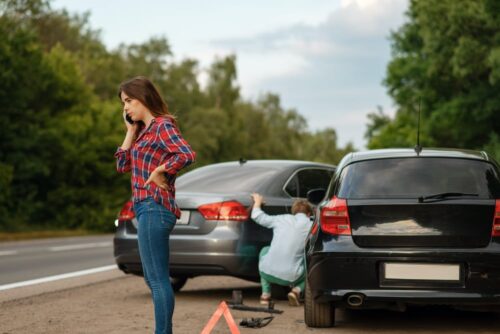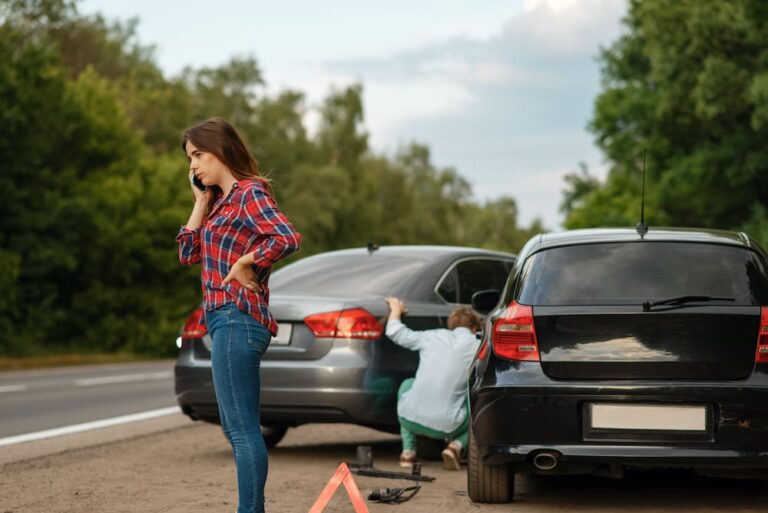
Our admonition is to “always tell the truth,” but sometimes it is better to say nothing. A car wreck can leave anyone shaken, overwhelmed, and flooded with adrenaline. In the heat of the moment, you might say things that could make the situation worse. Whether you caused the accident or not, there are some things you should never say at the scene, although you are under an obligation to speak to an investigating law enforcement official and speak truthfully. Frankly, we have no illusion that you just had an accident and you’re reading this blog. So this information may be read too late, or you may be “Googling” while awaiting the arrival of first responders. Here is an important caution: There is a big difference between: 1) what you actually remember; and 2) what you think is a memory. The latter may be something that you assumed to be true because you’ve driven the same route previously, or because it is what you or someone else would typically do under similar circumstances. But you might have some “gaps” in your actual memory of the events prior to and following a crash. and you may have really detailed recall from the moment you perceived that there would be a crash through the end of the crash but may lack for details before and after the crash.


Please continue reading and reach out to a seasoned Stamford, Connecticut car accident lawyer from Casper & de Toledo to learn more about some of the things you should never say after a car accident.
Six Things Not to Say after a Car Accident
“I’m Sorry.”
Apologizing after a car accident may seem like the polite thing to do, but it could also imply that you’re responsible for the accident. Even if you think you were at fault, don’t say sorry. Instead, calmly ask if anyone is hurt, and exchange contact and insurance information with the other driver. Use your smart phone to photograph the information of the other driver(s).
“It Was Your Fault.”
Pointing fingers right after an accident is a bad idea. Accidents are often complicated, and determining fault is not always easy. Furthermore, accusing the other driver of being at fault can make them angry, defensive, or, in the worst cases, even turn to violence, which is never good. Instead, simply remain calm and focus on collecting the information you need for your insurance claim.
“I’m Not Injured.”
Don’t assume that you’re fine just because you don’t feel any pain or see any blood. Injuries from car accidents can be hidden or delayed by adrenaline. Saying “I’m not injured” can hurt your chances of getting compensation later if you find out that you were injured after all.
“I’ll Take Care of This without Insurance.”
Even if the damage seems minor, you should always report the accident to your insurance company. If you don’t, you could face legal and financial problems later on. Saying “I’ll take care of this without insurance” can also backfire if you or the other driver end up with injuries or damages that are more serious than they appear.
“I Don’t Remember How the Accident Happened.”
As you likely know, car accidents are often traumatic, and traumatic events can have an impact on a person’s memory, especially when brain injuries occur as a result. However, it’s vital to provide a clear and honest report of how the accident occurred to law enforcement and your attorney. Insurance companies may try and communicate with you before you can hire an attorney, but you should leave this communication to your lawyer. Overall, however, stating “I don’t remember what happened” could make it more difficult to determine who was liable for the crash and endanger your chances of getting compensation. That said, in the case of a head injury, it is possible you don’t remember what occurred. If that is the case, you should be seen at the nearest emergency department.
“I Don’t Have Time for This.”
A car crash can be a stressful and time-consuming situation, but it’s important to not hurry through it. You need to gather information and exchange insurance details with the other driver. If you declare “I don’t have time for this,” you might appear rude and uncooperative. It’s better to be patient and cooperative with the other driver to ensure that you have all the information you require.
If you have any further questions about what to do (and what not to do) after a car accident, or if you’ve been injured in an accident due to no fault of your own, and you’re looking to file a lawsuit against the party responsible, simply contact Casper & de Toledo today so we can get started working on your claim.
“I Want a Lawyer” or Some Variation.
While we are not criminal lawyers, the request for a lawyer at the scene of a crash might be appropriate if you were driving under the influence or impaired by alcohol or drugs, or if you were engaged in criminal or reckless activity like operating at an excessive speed or racing. Absent criminal activity, and as noted above, an operator of a motor vehicle involved in a crash does have an obligation to speak with investigating law enforcement. But you do not have an obligation to speak to the other driver’s insurance company. A representative of the other driver’s insurance company will likely reach out to you, particularly if the perception is that the other driver was at fault. Should you receive such a call and the police report is accurate, it is okay to deflect the conversation by informing the adjuster that you agree with the police report. If you believe that you will be retaining an attorney, you should inform the other side’s adjuster that you would prefer not to discuss the event because you intend to hire an attorney.

